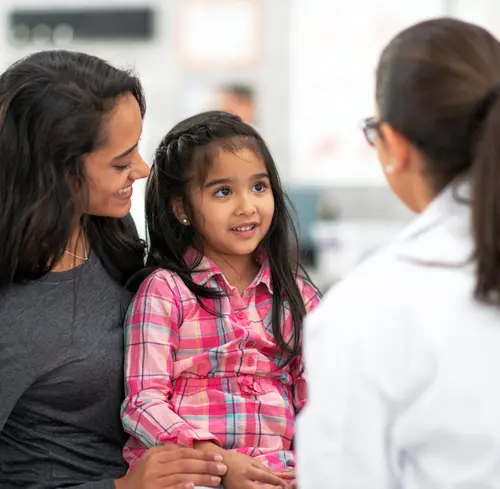Attention deficit hyperactivity disorder (ADHD) and depression are both common mental health conditions in children. Almost 10% of children in the U.S. have ADHD and around 4% have depression. It’s also common for kids with ADHD to have depression.
One study found that 18% of children diagnosed with ADHD at age 4 to 6 had major depression by the time they were 18. This is about 10 times the rate at which those without ADHD will develop depression. Studies show the prevalence of depressive disorders in kids with ADHD ranges from 9% to 38%. Kids with ADHD are also more likely than other kids to attempt suicide.
What’s the Link Between ADHD and Depression in Kids?
There are lots of reasons that kids with ADHD may be more likely to deal with depression.
Kids with ADHD may have trouble in school, with friends, and at home. So ADHD and its symptoms can make it more likely for children to feel down. They may feel like they can’t live up to their potential or the expectations that others have for them.
On top of normal feelings of sadness many kids with ADHD may have major depression or another mood disorder. It’s possible this is related to the experience of having ADHD. But there may be other reasons, too. For instance, some of the same genes involved in ADHD may also play a role in depression.
How Is Depression Diagnosed in Kids With ADHD?
Sometimes it’s hard to tell if a child with ADHD also has depression. That’s because some of the symptoms, such as trouble concentrating or acting agitated, can overlap. If your child with ADHD seems sad or hopeless, they might have depression. If they are having thoughts of suicide or are otherwise struggling, see a doctor who can help diagnose and treat them.
Symptoms of major depression include:
- Ongoing depressed mood
- Lack of interest and ability to enjoy most or all activities
- Low self-esteem
- Feelings of guilt or like they aren’t enough
- Trouble with friends
- Low energy
- Trouble making decisions
- Feelings of failure or rejection
- Changes in appetite or weight
- Complaints about headaches or stomachaches
- Trouble sleeping at night or sleeping too much during the day
- Pacing, wringing of hands, or other similar actions that don’t have any purpose
- Thoughts of suicide
For a doctor to diagnose a child with depression, the kid usually must show the first two symptoms and at least three others, for a minimum of 2 weeks.
How Is Depression Treated in Kids With ADHD?
Even though ADHD and depression often go together, there aren’t many studies that have looked at the best way to treat the combination in kids. ADHD is usually treated with medicines known as stimulants. Antidepressants might also help some symptoms of ADHD and ADHD that’s combined with depression. Studies suggest it’s safe to take these together. Talk to your doctor about the best way to treat it if your child with ADHD has depression.
There are many antidepressants, but not all of them are OK for kids to take. Some also can lead to suicidal thinking. Make sure to talk to your doctor about any side effects to watch out for related to medicines your child is taking and let them know if you think there are any new or worsening symptoms.
Your doctor should monitor your child closely to make sure the medicine is helping. If your child may need more than one medicine, they may start one first before adding another. Keep in mind also that the side effects of stimulants used to treat ADHD have some overlap with symptoms of depression.
If you think your child with ADHD may be depressed, ask your doctor if any of the symptoms could be caused by side effects. Some side effects of medicine usually go away after your body gets used to the medicine. They could also go away if you change medicines or lower the dose.
Side effects of stimulants may include symptoms also seen in depression such as:
- Headaches or stomachaches
- Eating less
- Losing weight
- Trouble sleeping
Treating ADHD symptoms may help kids feel less depressed. Therapy also can help them to process their feelings and learn other ways to cope. Family counseling may help you to understand your child’s ADHD and depression and ways you can support them.
Are Kids With ADHD and Depression at Risk for Suicide?
Kids with ADHD are more likely than other kids to think about and attempt suicide. One study found that kids with ADHD early in life are five times more likely to have thought about suicide at least once. They are also twice as likely to attempt it. Girls with ADHD are at even higher risk than boys with ADHD.
Thoughts of suicide in kids with ADHD may be related to depression. There may be other reasons for the link between ADHD and suicide risk, too. Kids with ADHD tend to be more impulsive. Kids with ADHD are also more likely to use drugs and alcohol. Substance use may make young people more likely to act on suicidal thoughts. If your child with ADHD is suffering with depression and thoughts of suicide, get help right away.

